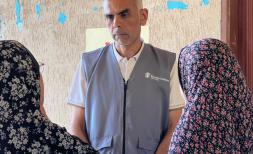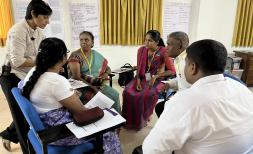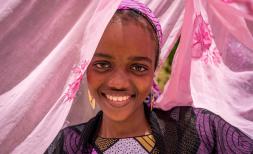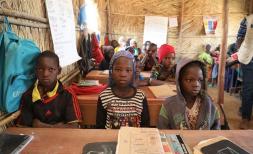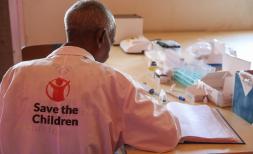Mind our Rights Now: A critical moment to ensuring children’s mental health and wellbeing
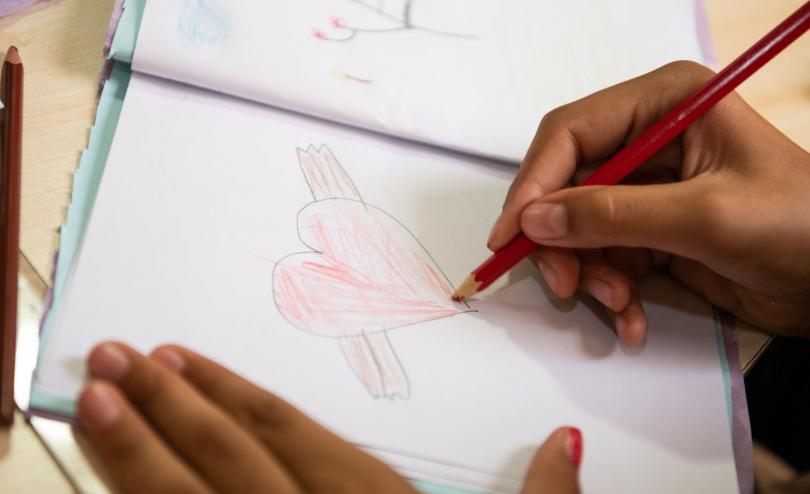
Children all over the world have been affected by the COVID-19 pandemic. For some, this has been brief, for others, the impacts are still being felt. In these troubled times, the mental health and psychosocial wellbeing of children are intrinsic to their right to enjoy life to the fullest.
We have all felt how being locked down, isolated from friends, family and colleagues, deprived of comforting routines affects the world inside our heads, our ability to cope with uncertainty, to keep going when things turn tough and to cope with adversity.
What is the situation for children?
For millions of children around the world, violence, displacement, loss and grief were already a reality long before COVID-19. Through our work in South Sudan, a boy once told us: “I never get up in bed in the morning, I remain crying whenever we spend the night without food to eat at our home”.[1]For many, COVID-19, became a crisis on top of a crisis, and by the end of 2020, the majority of organisations working in humanitarian crises reported that affected populations were experiencing severe or extreme psychological distress. [2]
Why is action to protect children’s mental health and wellbeing important?
Children demonstrate a natural ability to successfully cope with distress, depending on their age, developmental stage, disability status and access to basic and survival needs. Yet, receiving adequate social-emotional and responsive care from a constant caregiver is key to avoiding immediate and detrimental effects on children and adolescent’s development, wellbeing and mental health.
Up to 20% of children worldwide struggle with a mental health condition. Protecting and promoting child and caregiver mental health and psychosocial wellbeing is a life-saving priority, fundamental to sustain children’s healthy development, learning, protection and wellbeing from infancy into young adulthood.
A 19-year-old Syrian woman living in the Netherlands tells us; “It was that moment in time where I felt life had become useless. It was the psychosocial support that helped me connect with Dutch society, build up friendships and support networks. Receiving psychosocial support was crucial in finding my identity. It helped me to stabilize and move forward”.
Children and adolescents with mental health conditions don’t only face challenges to their overall childhood development, they often face stigma, isolation and discrimination, which are significant barriers to accessing the support services they need, including general health care and education, denying them their fundamental human rights.
What needs to happen?
Next week, on October 5th and 6th, the third Ministerial Mental Health Summit is taking place in France. Save the Children is working with young people and partner organisations to ensure governments take action to support children’s and adolescents’ rights to mental health and wellbeing.
It is time governments listen to those who are impacted the most and who bring the first-hand experience to what needs to change.
“We all have to take action ourselves and States need to commit to making this a priority, raising awareness about the importance and including Mental Health and Psychosocial Support in their national budgets and community (education) action plans.” – 23-year-old young woman from Mali.
As part of ensuring children and young people enjoy their right to live fulfilling and healthy lives, Save the Children is also encouraging individuals, governments and organisations to endorse the Copenhagen 2020 Action Plan. This plan outlines targeted actions to achieve mental health and psychosocial well-being for children and their families in adverse circumstances.
During the Ministerial Mental Health Summit we are calling for decision-makers to commit to:
- Integrate mental health in health systems and response during and after the COVID-19 pandemic, by including mental health in national and international public health policies and increasing budgets for mental health accordingly.
- To acknowledge children’s mental health and wellbeing as a right, by committing to the Convention on the Rights of Persons with Disabilities (CRPD) and take action to tackle stigma and human rights violations of children with mental health conditions and psychosocial disabilities.
Taking action on mental health for children and adolescents can no longer wait and we call on all of you to share our message with decision-makers and the people around you. The more people speak up, the more we can do for children all over the world.
To find out more, see: Save the Children Policy Statement on MHPSS for children, adolescents and their families
[1] South Sudan child-led consultation, 2021
